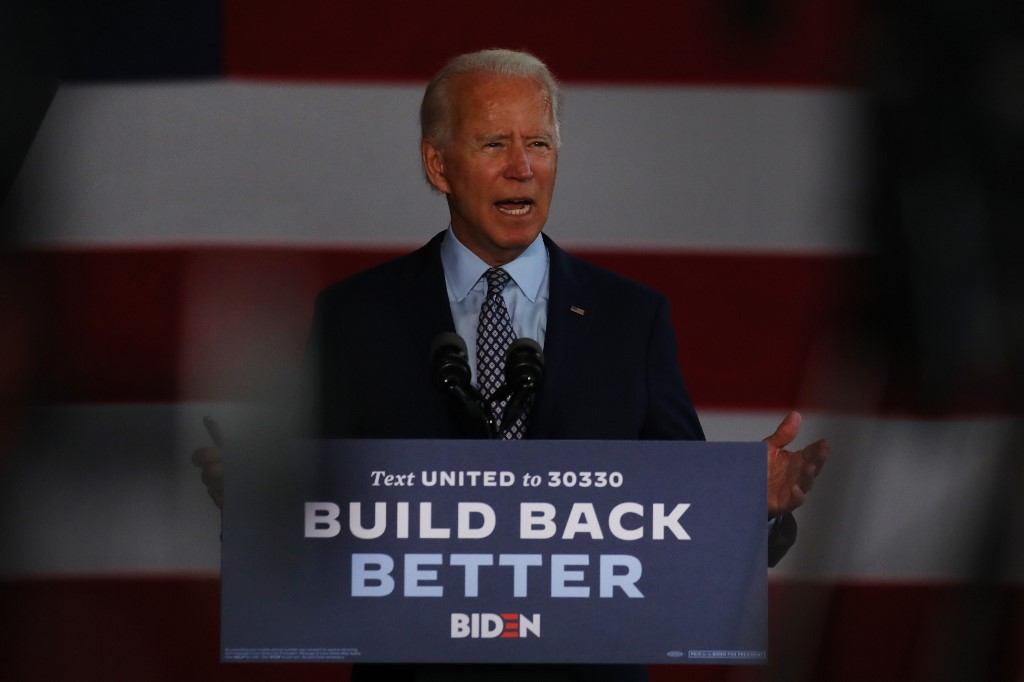(ATF) Political gridlock in the US seems likely after a closely fought election. This could shift the focus from a trade war with China to a battle between US and Chinese technology firms.
US stocks rose sharply as the results of an exceptionally close election advanced painfully slowly on Wednesday, with the S&P500 closing the day up 2.2% and the technology heavy Nasdaq rising almost 4%.
Biden seems more likely to prevail in the presidential race but whatever the eventual outcome, the prospect next year is for political gridlock in Washington, as a divided Congress will be able to delay planned legislation.
The Asia Eight: Daily must-reads from world’s most dynamic region
That could hamper the provision of further economic stimulus, but it will also prevent corporate tax hikes and significant changes in regulation.
That was viewed as a positive outcome by investors, who reacted in a familiar way by bidding up technology stocks, which now seem unlikely to face tougher regulation and can concentrate on growth.
Tech stocks jump
Facebook rose more than 8%, while Amazon and Google parent Alphabet were both up by around 6%.
Uber was also a big winner, with its shares up 14.6% after California voters approved a ballot measure that ensures it can continue to treat its drivers as independent contractors in the state.
Technology stocks outperformed other sectors, such as infrastructure and green energy that had been expected to benefit from a potential ‘blue wave’ to give the Democrats control of both the presidency and Congress.
A divided, distracted America could take the sting out of the trade war with China that was a focus for President Trump.
That in turn could shift attention to the details of competition between US and Chinese technology firms.
Bank of America analysts recently predicted that the trade war between the US and China could turn into a tech war after the US election.
Now there is likely to be greater focus on how this tech war could play out.
Global attention to the US election has distracted many investors from weighing the likely impact of China’s latest five-year plan.
China tipped to boost R&D
Analysts at HSBC issued a report (the day before the US election) that predicted that local technology companies would be likely winners from the impact of the plan.
“Local leaders in innovative sectors such as biotechnology, semiconductor, robotics, automation, smart manufacturing and digital supply chain stand to benefit,” said the report by Xian Chan, global head of wealth insights at HSBC wealth and personal banking, and Cheuk Wan Fan, chief market strategist for Asia at HSBC private banking.
“We expect China to spend more on research & development – we forecast an increase to 3% of GDP, compared to 2.2% in 2019 – to become more technologically self-reliant. We would expect financial reforms so China’s capital markets can better fund R&D spending. Other initiatives such as tax incentives, public-private partnerships and better intellectual rights protection could take focus,” they predicted.
US technology companies may not benefit from direct state sponsorship or the side-effects of a significant stimulus package of spending. But the continuing rally in stock prices for tech firms in the wake of the US election indicates that they will have no shortage of financing as they compete with Chinese companies.
























